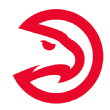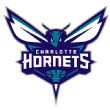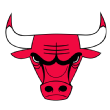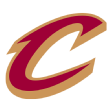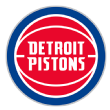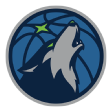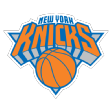Best and worst cases for the Warriors, the Knicks and the teams we haven't seen since March

Next season will reintroduce the eight teams that didn't make the cut for the NBA's restart this summer in Orlando, Florida.
For the Atlanta Hawks, Charlotte Hornets, Chicago Bulls, Cleveland Cavaliers, Detroit Pistons, Golden State Warriors, Minnesota Timberwolves and New York Knicks, the tipoff to the 2020-21 season will be their first time on an NBA court since March.
The Warriors plan to pick up their championship pursuit after injuries to Klay Thompson and Stephen Curry derailed last season. For the Bulls and Knicks, front-office and coaching shake-ups give hope for a brighter future.
What do success and failure look like for these eight teams after such a long layoff? Our experts detail what could go very right or very wrong for each.
MORE: The 25 best free agents available in 2020
Atlanta Hawks
Best case
A young, talented team usually breaks through at some point. There was a thought, briefly, that last season would be that time for the Hawks. The start was promising and there were signs of an upward move. But John Collins' suspension, some injuries and a lack of defensive development put them right back in the lottery.
Next season is another shot at making that progress. Trae Young's offensive ability and stardom have been established. The young players have improved. Clint Capela could be the interior bulwark needed to stabilize an abominable defense.
The Hawks can score. They just let their opponents score a lot more. If they make some defense-minded moves this offseason -- in addition to several such moves in the last year-plus -- those decisions might start to show results. If they improve on defense -- even just to middle of the pack -- they could be an Eastern Conference playoff team.
Worst case
At their core, the Hawks have a simple but possibly unsolvable issue: Their best player is also their biggest liability in their biggest area of weakness. Young's defense has been an issue, and while there have been moves made to try to cover for his limitations, playing a defensively deficient player for 40-plus minutes a game can take its toll.
Adding Capela was an effort to address some of that on the back end, but it's not just Young. The Hawks have not developed an identity beyond running and gunning, and they aren't offensively elite enough to simply outscore opponents every night.
The Hawks have set themselves up to operate on a process-oriented plan, and it's about time to see those investments yield results. If the Hawks don't progress into the playoff hunt next season, change could be coming.
-- Royce Young
Charlotte Hornets
Best case
In the dream scenario, the Hornets find a future star. There was enough competence on Charlotte's roster last season to hang around the fringes of the playoff race, but no big-time upside. Devonte' Graham's leap forward in his second season was impressive, but he's limited by his size and poor finishing. At 25, Terry Rozier probably isn't going to improve dramatically. Miles Bridges has yet to create his shot efficiently enough to project as more than a quality starter at best.
That leaves two good options for the Hornets: PJ Washington and this year's No. 3 pick. Because Washington scored with average efficiency and was a weak rebounder, his rookie campaign didn't rate as well by advanced stats as per-game ones, but at 22, it's too early to define his ceiling. The No. 3 pick is Charlotte's highest since 2012. More than any other team in this year's draft, the Hornets should swing for the fences.
Worst case
The Hornets miss on another high pick. Their record in the lottery since returning to the NBA in 2004 is ugly:
- 2004: Emeka Okafor (No. 2)
- 2005: Raymond Felton(No. 5)
- 2005: Sean May(No. 13)
- 2006: Adam Morrison(No. 3)
- 2008: D.J. Augustin(No. 9)
- 2009: Gerald Henderson Jr.(No. 12)
- 2011: Bismack Biyombo (No. 7)
- 2011: Kemba Walker(No. 9)
- 2012: Michael Kidd-Gilchrist (No. 2)
- 2013: Cody Zeller (No. 4)
- 2014: Noah Vonleh (No. 9)
- 2015: Frank Kaminsky (No. 9)
- 2017: Malik Monk (No. 11)
- 2018: Miles Bridges (No. 12)
Of the 14 lottery picks Charlotte has made over the past 16 years, only Walker made an All-Star Game. Besides Walker, there are some quality role players in this group, but such a player won't move the needle for the Hornets. As much as Charlotte needs to draft for upside, missing would be painful and leave the team no closer to returning to the playoffs for the first time since 2016.
-- Kevin Pelton
Chicago Bulls
Best case
After whatever this past season was for the Chicago Bulls, seeing the team's young core stay healthy enough to play together and compete for the eighth seed would be a step in the right direction.
Good health would allow the Bulls to see what they have in Otto Porter Jr. before his contract expires after the season. The same would be true of restricted free agent Kris Dunn, one of the NBA's best perimeter stoppers, assuming Chicago brings him back despite his struggles to stay on the floor.
One other area to watch with this club: how it delivers in the clutch. The Bulls were one of the NBA's worst teams in close games last season, as Zach LaVine often played with tunnel vision in putting the club on his shoulders late. By contrast, the Thunder, who were led by new Bulls coach Billy Donovan, finished with a league-high 30 clutch victories during the regular season.
Worst case
It would be a waste to gain no clarity on the question of whether Coby White is better as a lead guard, alongside the high-usage LaVine, or as the backup shooting guard. And it'd be a shame if the club doesn't seek more chances for Wendell Carter Jr. He's one of Chicago's best passers, but he often barely looks at the rim. Donovan, who coached former Bulls star Joakim Noah at Florida, should be able to help Carter realize his potential.
An overlooked blemish on this team's résumé is its brutal performance against solid competition. The Bulls were an NBA-worst 2-23 mark against teams .500 or better last season. To play that poorly against the league's best in consecutive seasons -- with a decent roster -- would be a failure, especially as the team tries to showcase its progress to free agents in 2021.
-- Chris Herring
Cleveland Cavaliers
Best case
After back-to-back 19-win seasons in the post-LeBron James era, contending for a playoff spot would be a huge success for the Cavs.
Cleveland must hit on its No. 5 pick in the upcoming draft to help a roster with plenty of holes. A full season under head coach J.B. Bickerstaff, hired full time in March after John Beilein agreed to part ways 54 games into his first season, would establish stability for young guards Collin Sexton and Darius Garland, with added leadership from All-Star veterans Andre Drummond and Kevin Love.
Ideally, the Cavs fight all season to hover around .500 and contend for the No. 8 seed in the East.
Worst case
If Cleveland fails to improve defensively after giving up 42.8 points per game in the restricted area last season -- the most by an NBA team in the last 23 seasons, per NBA.com/stats -- things could go sour.
Sexton, entering Year 3 after emerging as one of the best scorers in the NBA after the All-Star break last season -- 25.5 points per game on 53% shooting in 11 games -- can't take a step back as he becomes a focal point of opposing defenses.
If moves by GM Koby Altman and the front office, such as adding Drummond and Bickerstaff, don't translate to wins in 2020-21, the franchise could suffer its third straight sub-20-win season.
-- Eric Woodyard
Detroit Pistons
Best case
The Pistons hope to get another borderline All-NBA season from Blake Griffin,which, despite his bloated contract for this season and next, could allow them to move on from him before the trade deadline to ensure Detroit finishes at the bottom of the NBA standings.
The Pistons could then use their cap space to acquire more draft assets to help new general manager Troy Weaver begin to turn around the franchise. Those plans would get another massive boost if the Pistons win the 2021 NBA draft lottery, giving them a chance to pick at the top of a deep class and give them a shot at landing the franchise's first homegrown superstar since Grant Hill in the mid-1990s.
Worst case
If the franchise watches its star spend the season on the shelf with more injuries and doesn't get the chance to flip a resurgent Griffin for future building blocks, that could spell trouble. Meanwhile, it could mean the Pistons attempt to get better quickly in free agency by spending money on long-term deals that both clog up the team's books for years to come and do nothing to improve Detroit's standing at the bottom of the league.
If the team's young talent -- including second-year forward Sekou Doumbouya and the team's latest lottery pick -- both look more like busts than long-term fits, that will be a problem. And if the team's lone other potential intriguing young player, Luke Kennard, isn't healthy enough to be turned into a draft asset by the trade deadline, that will raise other issues.
Detroit could find itself in the spot it was in after the 2019-20 season: near the league's basement but not bad enough to realistically have a shot at the No. 1 overall pick.
-- Tim Bontemps
Golden State Warriors
Best case
This is a proud group looking to compete for another NBA title. In a season that goes according to plan, the Warriors become the Warriors again: Stephen Curry, Klay Thompson and Draymond Green remain healthy and lead the team back to prominence as a young bench finds its way. Golden State hits on the No. 2 overall draft pick or flips it in a deal to land another star-caliber player.
If Curry finds his shooting stroke quickly after playing in just five games last season because of a hand injury, and Thompson again becomes one of the best two-way swingmen in the league after missing all of last season because of an ACL injury, the Warriors have a chance to get back into the NBA's upper echelon.
That process accelerates if Andrew Wiggins fits into the offense by playing off the Warriors' stars, Kevon Looney becomes a productive player again after a year full of injury problems, and Eric Paschall builds on a solid rookie season and develops into a trusted member of Steve Kerr's rotation.
Worst case
If Curry can't dominate at age 32, or if Thompson struggles to regain his All-Star form more than a year and a half removed from his ACL injury, the Warriors won't be the team we knew. The same goes for Green on the defensive end -- they need him to be great again.
A strong supporting cast is necessary, too. Wiggins and the young players are unproven, and Looney's health is a question. It remains to be seen if Curry, Thompson and Green can find the same chemistry with the newest Warriors that they had with the old group, which included glue guys and multifaceted contributors Andre Iguodala and Shaun Livingston. And of course, the Warriors' last title team featured Kevin Durant, who's now in Brooklyn.
In the worst-case scenario, the Warriors have to face the realization that their run as title contenders could be ending sooner than they expected.
-- Nick Friedell
Minnesota Timberwolves
Best case
The Timberwolves want to see Karl-Anthony Towns and D'Angelo Russell, who played only one game together after the trade that united the longtime friends, click on the court and emerge as one of the NBA's best 25-and-under tandems. With this duo combining for close to 50 points per game, the Timberwolves could crack the NBA's top 10 in offensive efficiency.
Before that, the Timberwolves hope to find a third franchise cornerstone with the No. 1 overall pick or by trading the selection. Minnesota especially needs the trio of Malik Beasley, Jarrett Culver and Josh Okogie to be strong defensively to help make up for the shortcomings of the team's stars and provide further evidence that they are quality rotation players.
If the Timberwolves compete for a playoff spot in the loaded West, that's a major step forward and a successful season in Minnesota.
Worst case
In the worst-case scenario, the Timberwolves continue to be bad defensively. That's a distinct risk when building around a center and a point guard who lack defensive instincts and whose effort on that end of the floor can often be politely described as indifferent.
If the development of the other young potential core players on the roster stalls -- or if they draft a dud with the No. 1 pick -- the Wolves could again be one of the NBA's worst teams. And next year, the pingpong balls might not bounce Minnesota's way. If the Timberwolves slip to No. 4 -- just outside of the top-three protection on the pick owed to Golden State as the tax for taking on Andrew Wiggins' contract in the Russell deal -- that could assure another year of misery in Minnesota.
-- Tim MacMahon
New York Knicks
Best case
Success next season won't be measured in wins and losses. Instead, the Knicks hope to develop a winning culture under new coach Tom Thibodeau -- and especially an improved defense -- and identify the young players who show the most promise as centerpieces for their rebuild.
The best-case scenario is that RJ Barrett develops into the superstar scorer he was drafted to be. And the team wants to see Mitchell Robinson and Julius Randle mesh into an impact front line.
The Knicks have six players 25 and under -- including former lottery picks Dennis Smith Jr., Frank Ntilikina and Kevin Knox II -- and three of the top 38 picks in next month's NBA draft, including No. 8 overall. The Knicks need to find a starting point guard and wing among these players and picks.
Worst case
The absolute worst case is if none of the young guys gain traction or show they are future NBA impact players. Rebuilding is difficult, but the first step is identifying and developing young centerpieces. If they squander their opportunities to find that young talent, the Knicks will continue to be stuck in the lottery purgatory in which they've resided since 2013.
If the Knicks continue to bring in overpriced free agents, and if Thibodeau takes a "win-now" approach, the rebuild could be halted before it really gets going. Thibodeau needs to be willing to play the youngsters and to avoid shrinking the rotation for short-term gain. All in all, the franchise must embrace the opportunity to build for the long haul -- taking the time to invest in the young players and assess them.
-- André Snellings

